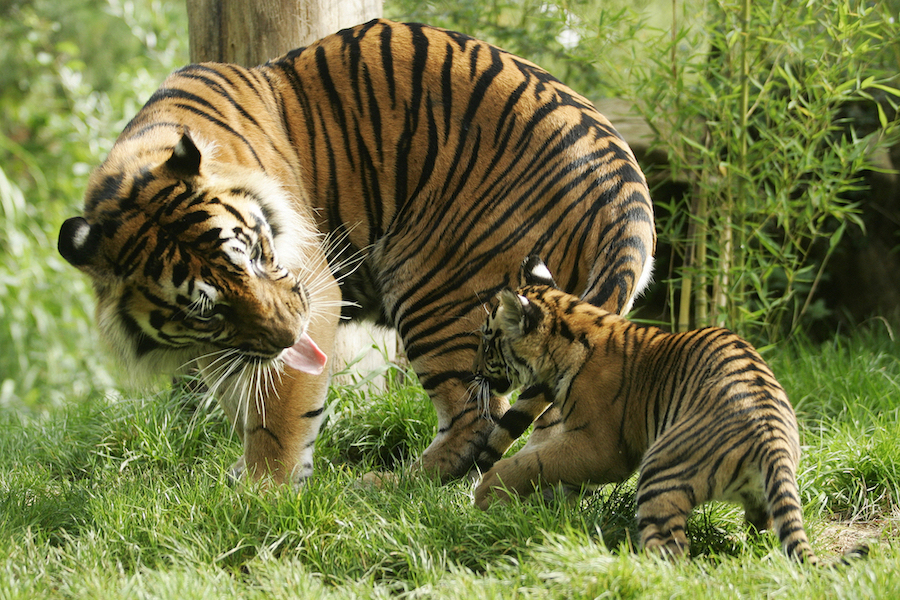Into the Wild
A Walking Paradox
The Sumatran tigers (Panthera tigris sumatrae) of Indonesia are a walking paradox. Strikingly powerful, they are one of the most predatory carnivores on the island, yet they are barely holding onto survival. With less than 400 Sumatran tigers left today, they are a critically endangered species due to high levels of poaching and unprecedented deforestation.
Researchers aimed to support population management of threatened carnivore species by conducting the first wide-range assessment of Sumatran tiger genetics using scat (feces). The sample collection itself proved to be difficult due to deterioration of DNA quality with increasing sample age and low encounter rates for intact scats in a tropical environment.
“It’s not whether animals will survive, it’s whether man has the will to save them.”
A Looming Debt
The methods used in the study presented further difficulties after collection as well, as fecal DNA is particularly prone to genotyping errors in tropical environments. This can be due to several factors that degrade nucleic acid – major ones including high humidity, heat, oxidation, and active nucleases. Researchers used DNA/RNA Shield, a preservative that can be used in the field to stabilize DNA and RNA at ambient temperatures, to prevent nucleic acid degradation and improve PCR success for fecal samples. Their findings indicated that the Sumatran tiger population retains levels of genetic heterozygosity compared to tigers on the mainland. This suggests a sort of ‘debt’ that increases the risk of extinction if conservation measures are not taken in the next 30 to 100 years.

Critical Conservation
As Anthony Douglas Williams- author of Inside the Divine Pattern- said, “It’s not whether animals will survive, it’s whether man has the will to save them.” We, researchers and the public alike, have the tools to reverse the decline of highly threatened species. Genetic studies like this one are particularly critical to improve population management of the highly threatened species. With supporting information from research, organizations like WWF can prioritize their efforts to save species like the Sumatran tiger from extinction.
References:
1. Smith, Olutolani, Jinliang Wang, and Chris Carbone. "Evaluating the effect of forest loss and agricultural expansion on Sumatran tigers from scat surveys." Biological Conservation 221 (2018): 270-278.


